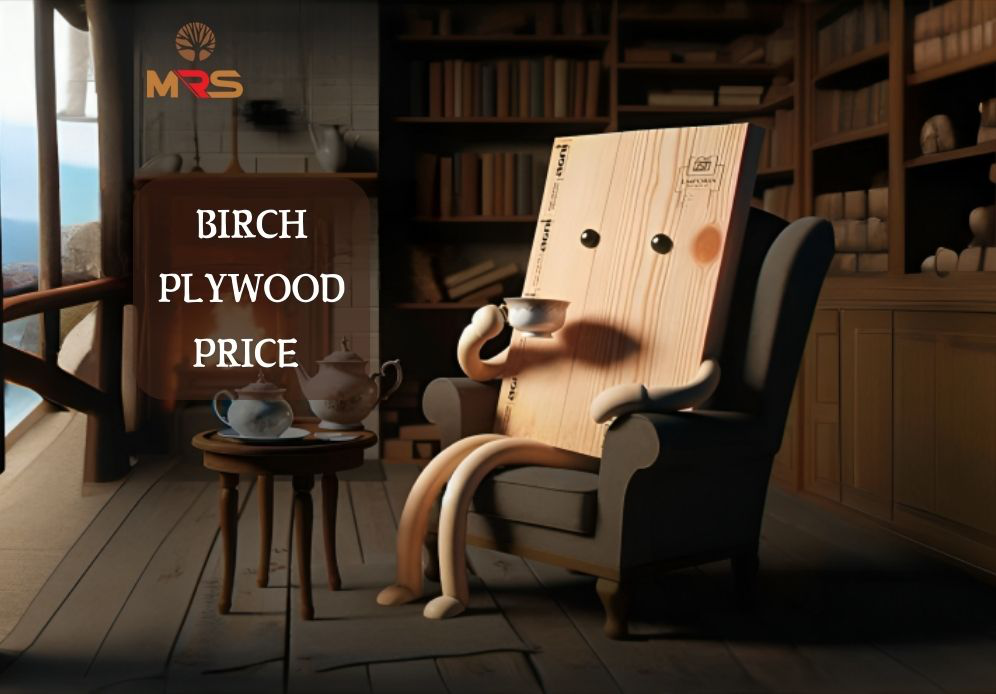Birch plywood stands out in the world of woodworking due to its robustness, versatility, and aesthetically pleasing appearance. It’s a popular choice for various applications, from cabinetry and furniture to decorative elements and crafts.
If you’re planning a project that involves birch plywood, understanding its pricing is crucial for budgeting and making informed decisions. This comprehensive guide delves into the factors influencing birch plywood prices and provides answers to frequently asked questions to help you navigate the purchasing process.
What Is Birch Plywood?
Birch plywood is crafted from multiple layers of birch veneer bonded together with adhesive. It is renowned for its smooth surface, uniform texture, and fine grain, which makes it a favorite among woodworkers and builders. The plywood comes in various grades, sizes, and thicknesses, each impacting its overall price. Birch plywood is valued for its durability and ability to hold up well in both structural and aesthetic applications.
Factors Affecting Birch Plywood Prices
Several key factors affect the cost of birch plywood:
- Thickness: The thickness of the plywood significantly impacts its price, with thicker sheets generally costing more due to increased material and production costs. Common thicknesses are used for different applications, from lightweight projects to heavy-duty furniture.
- Grade: Birch plywood comes in various grades that affect its cost. Higher grades, like Grade A, feature a smooth, defect-free surface, while lower grades, such as Grade D, include noticeable defects and are often used for industrial purposes.
- Size: Standard birch plywood sheets measure 4×8 feet, but custom sizes and larger sheets can be more expensive. Custom dimensions and larger sheets typically incur additional charges.
- Finish: Plywood that is prefinished or has specialty finishes, such as UV coatings or custom stains, will generally cost more compared to unfinished plywood.
- Supplier: Prices can vary between suppliers based on location, demand, and other market conditions. Local lumberyards, home improvement stores, and online retailers may offer different pricing structures.
Average Price Range
The cost of birch plywood can fluctuate based on the aforementioned factors. Here’s a general price range for different thicknesses:
- 1/4 inch thick: ₹2,490 to ₹4,150. per sheet
- 1/2 inch thick: ₹4,150 to ₹6,640 per sheet
- 3/4 inch thick: ₹5,810 to ₹9,960 per sheet
These prices are estimates and can vary based on location, supplier, and current market conditions. Always check with multiple sources to get the best price for your needs.
Where To Buy Birch Plywood
Birch plywood is available through various channels, each offering different pricing and options:
- Home Improvement Stores: Major chains like Home Depot and Lowe’s provide a selection of birch plywood in standard sizes and grades. These stores are convenient for picking up smaller quantities or checking out samples.
- Lumber Yards: Local lumberyards often offer a broader range of plywood options and may provide better pricing for bulk purchases. They also offer expert advice on selecting the right type of plywood for your project.
- Specialty Woodworking Stores: For high-quality or specialty birch plywood, visit stores dedicated to woodworking supplies. These retailers often carry premium grades and custom finishes.
- Online Retailers: Websites like Amazon, eBay, and specialized online plywood suppliers offer the convenience of home shopping. Online retailers may have a wider selection and competitive prices but check shipping costs as they can impact the overall price.
Cost-Saving Tips
To make the most of your budget when purchasing birch plywood:
- Buy in Bulk: Purchasing larger quantities can often reduce the per-sheet cost. If you have multiple projects or need plywood for extensive work, buying in bulk may be cost-effective.
- Compare Prices: Don’t accept the first price you come across. Check prices from multiple suppliers to ensure you secure the best deal.
- Look for Sales and Discounts: Keep an eye out for promotions, sales, and discounts at local stores and online. Special offers can help you save money on your plywood purchase.
- Consider Alternative Grades: If the appearance is less critical, opting for a lower grade of birch plywood can save you money. Lower-grade plywood still provides functionality but at a reduced cost.
Conclusion
Birch plywood is a valuable material in woodworking, offering strength, versatility, and a pleasing appearance. Understanding the factors that influence its price and knowing where to purchase it can help you make informed decisions and manage your budget effectively. By considering thickness, grade, size, finish, and supplier options, you can find the best birch plywood price for your needs that fits your budget.
Frequently Asked Questions (FAQs)
Why Is Birch Plywood More Expensive Than Other Types Of Plywood?
Birch plywood is often more expensive due to its high quality, fine grain, and durability. The cost is also influenced by the availability of birch wood and its popularity in various applications.
How Can I Determine The Quality Of Birch Plywood?
The quality of birch plywood is assessed by its grade. Higher-grade plywood has fewer imperfections and a smoother surface. Inspect the plywood for visible defects and check the grade label to ensure it meets your project requirements.
Can Birch Plywood Be Used For Outdoor Projects?
Birch plywood is generally not recommended for outdoor use unless it has been specifically treated for exterior conditions. For outdoor applications, consider using exterior-grade plywood designed to withstand moisture and weather.
How Do I Choose The Right Thickness For My Project?
Select the thickness of birch plywood based on the requirements of your project. Thicker plywood is better for structural support and heavy-duty applications, while thinner plywood is suitable for lighter projects and decorative uses.
Is Birch Plywood Easy To Work With?
Yes, birch plywood is known for its ease of workability. It holds screws well, sands smoothly, and takes finishes effectively, making it a versatile choice for various woodworking projects.

